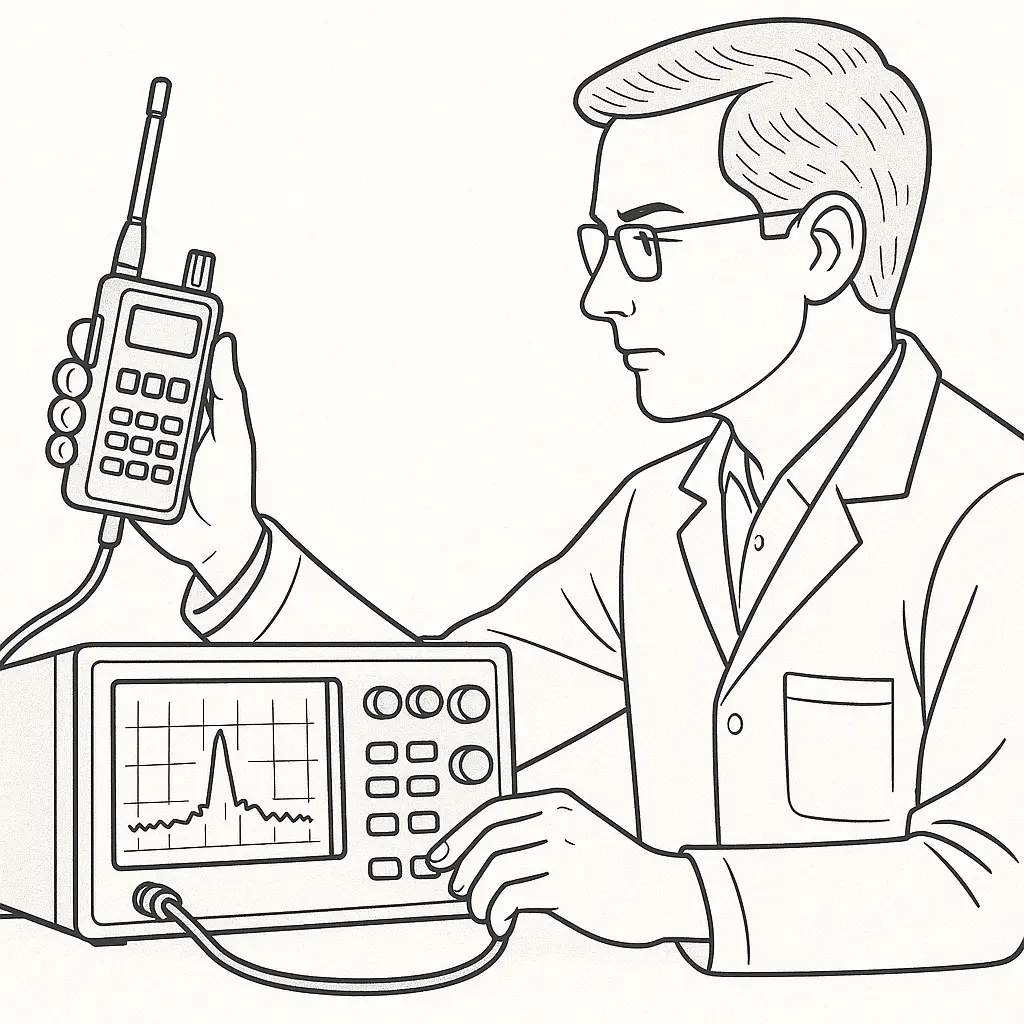If you are a new customer and you order additional two-way radios to expand your existing fleet, we'll ask you to send us one of your current radios as a "donor" unit. We understand this might seem like an inconvenience, but there's a very good reason for this request - and it's all about making sure your new radios work perfectly with your existing ones from day one.

What Your Ofcom Licence Tells Us (And What It Doesn't)
Your Ofcom radio licence contains essential information about your radio system: your operating frequencies and privacy codes. However, it doesn't tell us the complete story of how your radios are actually configured.
Here's what's missing:
Channel Order Matters
Unless you're operating on a single frequency (which is unusual), your previous supplier could have programmed your channels in any order they chose. Your Ofcom licence might list three frequencies, but it won't specify which one is Channel 1, which is Channel 2 and which is Channel 3 etc.
This matters because you need Channel 1 on your new radios to match Channel 1 on your existing radios. Otherwise, your team won't be able to communicate properly, and you'll face confusion and frustration on site.
Custom Function Buttons
Many radios have programmable function buttons that your previous supplier may have configured for specific tasks - emergency alerts, scanning functions, or other features your team relies on daily. These settings aren't recorded on your Ofcom licence, but they're crucial for maintaining consistent operation across your fleet.
We want to replicate these settings so your staff don't need to relearn how to use their radios or lose functionality they depend on.
Digital Radio Settings
If you're using DMR or dPMR digital radios, there are additional technical settings that Ofcom doesn't specify at all. These include radio ID codes, group call codes and other parameters that are essential for your digital system to function correctly.
Without reading these directly from your existing radios, we simply cannot programme your new units to work with your current fleet.
Every Radio Dealer Needs This Information
This isn't unique to Nationwide Radio Supplies. Any reputable radio dealer will need the same information to programme your radios correctly. The donor radio is simply the most reliable way to capture all these hidden settings accurately.
The alternative would be asking you to provide detailed technical specifications - information that most customers don't have readily available and would need to request from their previous supplier, which could take considerably longer (and may not be shared).
It's a One-Time Requirement
The good news is that we only need a donor radio once. After we've read and documented your configuration, we'll have everything we need for any future orders. You won't need to send another radio unless you want to update or change your settings.
Quick and Simple Process
We understand that being without a radio, even temporarily, can be inconvenient. That's why we've streamlined the entire donor radio process to make it as easy as possible for you.
Here's how it works:
When you place your order, we'll send you our donor radio form by email. This form provides clear, step-by-step instructions on how to send your radio to us safely, including all the return address details and any packaging guidance you need.
We prioritise donor radio programming and can usually turn it around within one working day of receiving your unit. Your donor radio will be safely returned to you along with your new, fully programmed radios—all ready to work together seamlessly.
The Result: Plug and Play
By taking the time to read your donor radio, we ensure that your new radios arrive ready to use immediately. Your team can pick them up, turn them on and communicate with your existing fleet without any configuration headaches or technical issues.
This small step at the beginning saves you time, frustration and potential communication problems down the line.
Ready to expand your radio fleet?
Contact us today for a quote, and we'll guide you through the simple donor radio process.
Have Questions?
If you have concerns about sending a donor radio or want to discuss your specific situation, please get in touch. We're happy to explain the process in more detail and address any worries you might have.
Our goal is to make expanding your radio fleet as smooth and straightforward as possible - and reading your donor radio is the foundation of that seamless experience.
Frequently Asked Questions
Q: How long will you keep my donor radio? A: Usually just one working day. We prioritise donor radio programming to minimise your downtime.
Q: Will my donor radio be damaged? A: No. We only read the settings - we don't modify your donor radio in any way.
Q: What if I don't have a spare radio to send? A: We only need to borrow one radio temporarily. We'll return it with your new radios, fully programmed and ready to use.